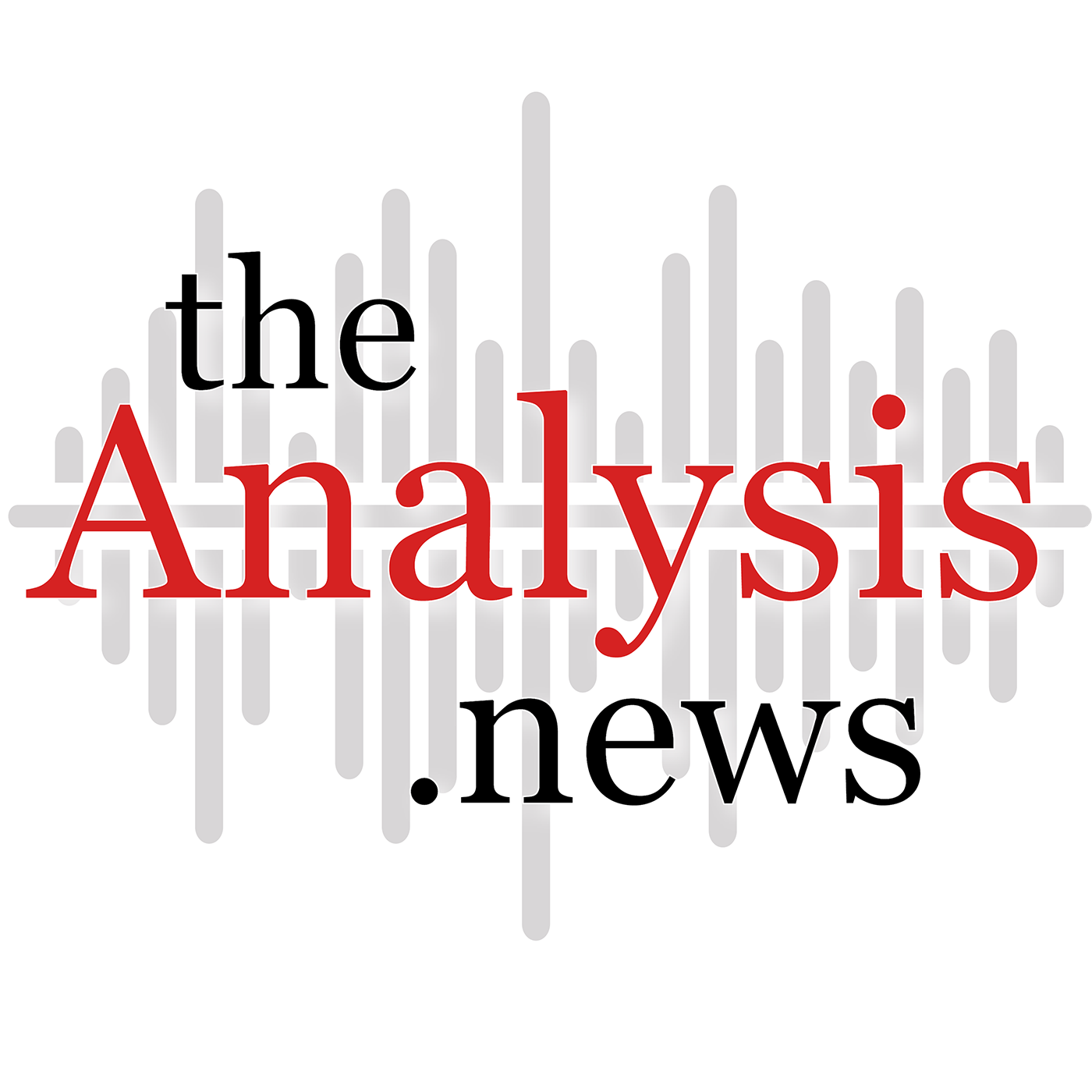

theAnalysis.news
Paul Jay
Quality journalism in these very dangerous times
Episodes
Mentioned books

Aug 11, 2023 • 43min
We Are Living in Oppenheimer’s Worst Nightmare
Oppenheimer warned of a world with an unrestrained nuclear arms race on the edge of catastrophe. We are there, says Matt Korda of the Federation of American Scientists. Hosted by Paul Jay.

Aug 9, 2023 • 38min
Free Boris Kagarlitsky – Katrina vanden Heuvel
Russian anti-war activist Boris Kagarlitsky has been charged with supporting "terrorism" and faces years in prison. Katrina vanden Heuvel, who has known Boris for decades, says whatever your views, people should demand the charges be dropped.

Aug 4, 2023 • 43min
U.S. and China Must Cooperate to Reduce Threat of Nuclear War and Deal With Climate Crisis
Talia Baroncelli and Paul Jay discuss Russian threats to use tactical nuclear weapons against Western Europe and what role China can play in solving the existential crisis of climate and threats of nuclear war—part 2 of 2.

Jul 31, 2023 • 31min
Russian Anti-War Activist – Boris Kagarlitsky Arrested – Paul Jay
Paul Jay and Talia Baroncelli discuss the recent arrest of Russian anti-war sociologist and Marxist Boris Yulyevich Kagarlitsky. Boris was interviewed several times on theAnalysis.news. Talia and Paul dig into what a long-term stalemate and threats of nuclear war might mean for Ukraine, Russia, and the world—part 1 of 2.

Jul 31, 2023 • 1h 1min
How Will the War in Ukraine End? – Boris Kagarlitsky
This interview was originally published on February 23, 2023. Boris Kagarlitsky talks about the mood of the Russian people and the possibility that the Russian military leadership might insist on ending the war.

Jul 27, 2023 • 1h 2min
Oppenheimer: U.S. Developed First-Strike Weapon and Used Japan to Prove it – Kuznick and Jay
Oppenheimer is a creative tour de force that sparks a necessary debate about today’s nuclear weapons. U.S. media still defends the false justification for a nuclear attack on Japan and the “first strike” underpinnings of U.S. policy. Peter Kuznick in discussion with Paul Jay.

Jul 21, 2023 • 46min
Protests Against Police Brutality – What’s Next for France?
Yasser Louati, political analyst and Head of the Committee for Justice and Liberties, highlights the brutal practices of the French police, as well as the proximity of the police unions to Marine Le Pen’s right-wing ideology. He discusses how French secularism, or laïcité, has been instrumentalized against racialized groups and minorities. Furthermore, he argues that France is at a crossroads; as seen in the anti-pension reform protests, different groups from the fringes of French society are uniting to protest the neoliberal state, as well as its policies which sustain religious and racial discrimination and the increased alienation of the poorer classes. Will French society keep fighting for justice and rise up against the regime, as it has done in various movements in the past?

Jul 14, 2023 • 32min
Subsidizing Chemical Fertilizers is Counterproductive Says Economist Jayati Ghosh
By reducing our reliance on chemical fertilizers, policymakers could turn the food crisis into a genuine opportunity towards shifting subsidies away from agribusiness-led to agroecological-led farming systems and a managed transition to healthy sustainable patterns of production, explains Jayati Ghosh. Lynn Fries interviews Jayati Ghosh on GPEnewsdocs.

Jul 12, 2023 • 1h
Extraction, Destruction of Ecosystems, and Fires in North America – Éric Pineault
Éric Pineault, professor of ecological economics at the Institute of Environmental Sciences at the University of Quebec in Montreal, explains how the fires raging in Canada are a corollary of the paradigm termed Extreme Oil. He discusses various oil and gas projects across North America, as well as the Canadian government's support for the Trans Mountain Pipeline project, and how terms such as "net zero" and "carbon neutral" are misleading and conveniently serve Big Oil's aims.
His recent book A Social Ecology of Capital presents an empirical analysis of capitalist societies, which both builds on and enhances Marxist theories by accounting for the energy extraction and colonization of ecosystems, a characteristic of what he terms our "fossil-industrial" society. His conception of capitalist metabolism outlines extractivism, production, consumption, and waste dissipation, which leads to an absorption of surplus energy, capital accumulation, and profit maximization. Most importantly, how is this understanding of social ecology useful for furthering a project of emancipation?

Jul 6, 2023 • 29min
U.S.-Iran: An Unwritten Agreement on the Horizon? – Trita Parsi
Trita Parsi, Executive Vice President of the Quincy Institute for Responsible Statecraft, discusses reported negotiations between the U.S. and Iran to agree to an unwritten deal. The JCPOA, or Iran nuclear deal, which was a legacy of the Obama administration, seems to be a thing of the past; yet de-escalation and an agreement on a smaller range of issues would be advantageous to both the U.S. and Iranian administrations. As in the case of Saudi-Iranian rapprochement, the role of China, Oman, and Iraq in facilitating these discussions is politically noteworthy. While the U.S. and Iran are nowhere near signing a comprehensive written deal which could be legally enforced and regulated internationally, a more limited unwritten deal would unfreeze at least 7 billion US dollars’ worth of Iranian assets, which would go towards purchasing food and medicine for Iranians.


